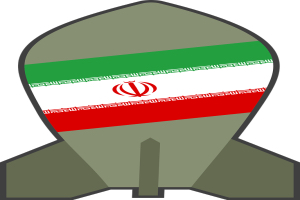
Washington/Tehran/Vienna/New Delhi/Beijing: After the Board of Governors of the Atomic Energy Agency (IAEA) adopted a resolution responding to Iran’s insufficient cooperation with the IAEA on serious and outstanding safeguards issues on June 8, 2022, France, Germany, the United Kingdom, and the United States, (E3-US) welcomed the Board’s decision stating that the outstanding safeguards issue relates to Iran’s obligations under its Nuclear Non-Proliferation Treaty (NPT) -required safeguards agreement.
The Governments of France, the UK, Germany and the USA issued a joint statement hailing the Board’s resolution, which they claimed affirmed the Board’s support for the independent, professional and impartial efforts of the IAEA to uphold the international safeguards system, “which is essential to all of our security”.
The E3-US said that the overwhelming majority vote at the IAEA Board of Governors sent an “unambiguous” message to Iran that it must meet its safeguards obligations and provide technically credible clarifications on outstanding safeguards issues.
“We urge Iran to heed the call of the international community to fulfil its legal obligations and cooperate with the IAEA to fully clarify and resolve issues without further delay. If Iran does this and the Director-General is able to report that the unresolved safeguards issues are no longer outstanding, we would see no need for further Board consideration and action on these issues,” the joint statement said.
Meanwhile Iran today slammed the E3-US ‘Anti-Iran’ resolution in the IAEA Board of Governors, and called it a “political, incorrect and unconstructive action”.
In New Delhi, the visiting Iranian Foreign Minister Hossein Amir Abdollahian said in a meeting with senior religious scholars today that the United States and the West “know that the atomic bomb has no place in Iran’s Islamic beliefs”.
In Tehran, Iranian Foreign Ministry in a statement today said that “It seems that some have forgotten that all previous cases were closed once and for all on December 15, 2015, by the Board of Governors”. It added that the adoption of the resolution was based on the “hasty and unbalanced report of the Director-General of the IAEA and based on the Zionist regime’s false and fabricated information”.
It said this will only weaken the process of Iran’s cooperation with the IAEA.
Iran further claimed that based on a joint statement dated March 5, 2022, it expressed its good faith in interacting with the IAEA by providing “accurate” technical information. It said the IAEA was also expected to take an “independent, impartial and professional approach, taking constructive and realistic steps to normalize safeguards issues that the Agency acknowledged were not concerned about non-proliferation”.
Claiming that Tehran always maintained “constructive cooperated cooperation with the IAEA in recent years, the Iran foreign ministry said a significant part of the IAEA inspections worldwide in Iran “confirms this fact”.
It said that Iran is currently “one of the most transparent peaceful” nuclear programmes among the IAEA member states.
As previously announced, the Islamic Republic of Iran has taken reciprocal practical steps due to the IAEA non-constructive approach and the adoption of the above-mentioned resolution, including the installation of advanced centrifuges and the deactivation of beyond safeguards cameras.
Standing behind Iran, China too today opposed “relevant countries pushing the IAEA Board of Governors to adopt a resolution to pressure Iran”. Beijing said that the talks on resuming compliance with the JCPOA were currently at a crucial juncture towards a conclusion. “Being confrontational at the IAEA Board of Governors will only undermine the Agency’s cooperation with Iran and disrupt the negotiation process,” Chinese foreign ministry spokesperson Zhao Lijian told reporters in Beijing.
“China supports the IAEA and Iran in resolving their differences on the safeguards issues through dialogue and cooperation. The pressing task at the moment is to facilitate a successful conclusion of the negotiations and bring the JCPOA back to the right track, which will make it much easier to find the solutions needed for resolving the safeguards issues,” Lijian said. He added; “Since the US started the Iranian nuclear crisis, it has the obligation to fully correct its mistakes, actively respond to Iran’s legitimate concerns and work toward an early conclusion of the talks on resuming compliance. All relevant parties need to create the necessary conditions and a favourable environment for this.”
Earlier on June 6, 2022, the IAEA Director-General Rafael Mariano Grossi had told the IAEA’s Board of Governors that the Agency cannot confirm the correctness and completeness of Iran’s declarations under its Comprehensive Safeguards Agreement.
He said that Iran had not provided explanations “that are technically credible in relation to the Agency’s findings at three undeclared locations in Iran”. Iran, he said, had also not informed the IAEA “of the current location, or locations, of the nuclear material and/or of the equipment contaminated with nuclear material, that was moved from Turquzabad in 2018″.
“The Agency remains ready to re-engage without delay with Iran to resolve these matters,” he said.
– global bihari bureau




